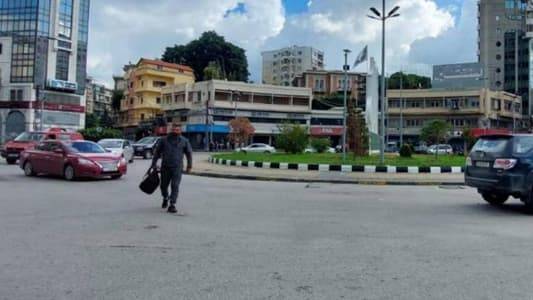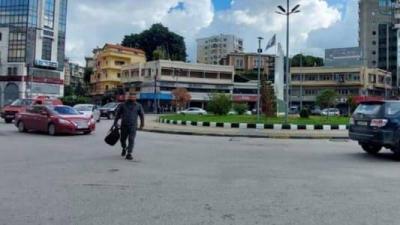How prevalent are the reports of robbery and snatching in the city of Tripoli these days! It seems that hardly a night goes by without hearing about dozens of operations of this kind—sometimes involving the use of weapons, sometimes involving snatching a woman's purse from her shoulder, other times involving the theft of a motorcycle or obstructing a car to snatch from its owner. The latest incident occurred in the Badawi area, where an individual was robbed at midnight. Unknown assailants blocked his path near the municipality building and assaulted him with a blade, stealing his motorcycle and mobile phone.
Robberies are not limited to the old markets and inner neighborhoods; they've extended to the streets of Al-Tall, Azmi, its branches, the Al-Damm and Al-Farz areas, and other areas that previously did not experience such phenomena. According to eyewitnesses, snatching operations are often carried out by one or two individuals using a motorcycle, frequently targeting women. Meanwhile, thefts and burglaries are executed by groups operating on motorcycles or in cars, laying ambushes for passing vehicles, or stealing from shops and homes.
What is happening in Tripoli cannot be separated from the difficult security reality the city is experiencing, particularly during nighttime when safety seems absent. Citizens are questioning the security plan previously outlined by the Minister of Interior and Municipalities in the caretaker government, Bassam Mawlawi, last September, when he announced that "security is not a matter of consent but enforcement, and all security and military forces are carrying out their duties and closely following up on security issues, including armed robbery, criminal gangs, weapon proliferation, and pursuing all lawbreakers... We protect the citizens' and the country’s security."
Citizens have not seen the effects of this plan, except for the patrols conducted by the Lebanese Army stationed at certain points in the city. However, the presence of internal security forces is not noted by people, especially at night, which is why the instances of robbery and snatching increase from one street to another and from one area to another, particularly in places devoid of nighttime lighting. The situation in Tripoli instills fear in the hearts of citizens, who carefully measure their steps at night and only venture out for emergencies. As for visitors from Akkar and the surrounding areas, they prefer to limit their visits to daylight hours, returning home before darkness falls to avoid the prevalent robbery phenomena.
A security source revealed to "Nidaa Al-Watan" that "these activities are not confined to Tripoli alone; in Beirut, for example, their occurrence rate is higher than in Tripoli.” Most of these operations are attributed to difficult living conditions and are often carried out by one or two people. Investigations with those arrested indicate they engage in these activities for purely social reasons.
While the security source acknowledges the increase in robbery and snatching incidents in Tripoli and the inability of security forces to completely curb them due to various difficulties, he adds: "It is challenging at this time to operate patrol units and security forces at night when these incidents are more frequent. Additionally, the conditions faced by security personnel are tough; vehicles need fuel, maintenance, and other essentials, which are all unavailable under current circumstances."
The same security source emphasizes that, despite the difficult conditions, the security forces continue to follow up on complaints from citizens regarding robbery and theft incidents. They are also making arrests, with almost daily detentions of two or three individuals, and sometimes even entire groups, as happened a few days ago.
MP Ashraf Rifi stated to "Nidaa Al-Watan" in this context: “In truth, due to the social and economic realities and the state's significant loss of authority, we do not expect these activities to end. It is known worldwide that when a society is in crisis and struggles to meet its various needs—like healthcare, electricity, and other services—this reflects on the security situation, leading to an increase in crime."
He adds, "The solution is not security-based, as security addresses results rather than causes. We need to address the underlying causes that have led to this chaos. A dignified social life for people must be secured to eliminate these phenomena." He points out that "people have lost everything, even hope. We have seen dreadful scenarios like the death boats and how people have fled this miserable reality. It is regrettable to say this, but we must hasten the restoration of overall political order through the election of a president who is not subservient to Iran and the formation of a government that restores Lebanese-Arab relations to their former state, as well as relations with countries worldwide to revitalize the country."




